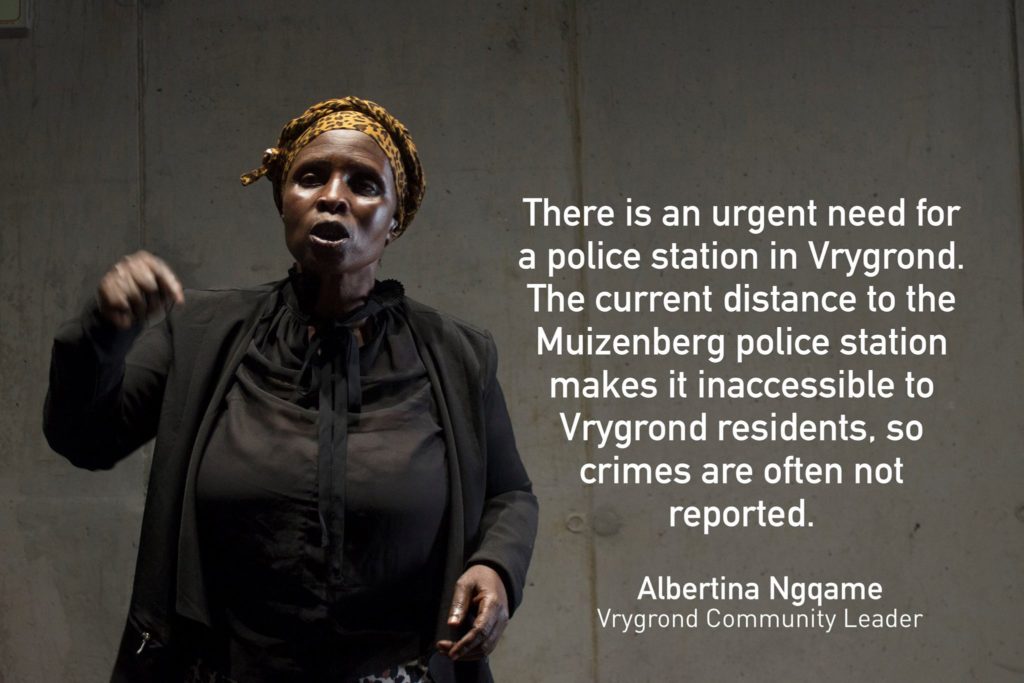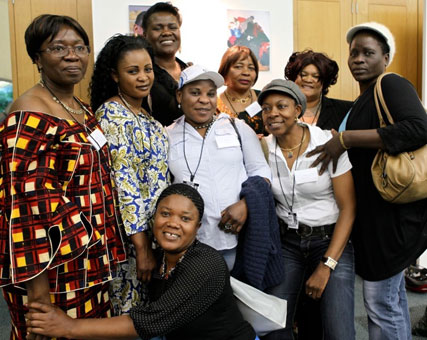
People don’t sleep because of the violence and crime. Early in the morning from 5am to 7:30 the screaming starts as people are robbed on their way to work and school. But the police resources continue to follow the apartheid patterns and, with the chance to change that unequal picture, the South African Police Service, or SAPS, is often making the same decisions as they did 25 years ago. So now we campaign for #PoliceResources.
Now they are suggesting building an extremely expensive police station in Muizenberg. People in Vrygrond, Seawinds, Capricorn can’t get to Muizenberg, but no matter. Communities in Delft, Nyanga, Mitchell’s Plain, Harare, Khayelitsha and many more are still not fixed. So, we need actions that join these dots and connect the different communities.
We held a meeting and here are some ideas from the room:
“We are gatvol” We are fed up and done with it.
Why 100 000 000 rand for one building???
We must watch how that money will be spent.
We must organize, not just the people suffering the worst crime and the least protection, but the white and re middle class too.
Interdict the SAPS, stop the building.
Occupy SAPS until we get a real commitment
#PoliceResources
(Image Credit: Facebook / Social Justice Coalition)
